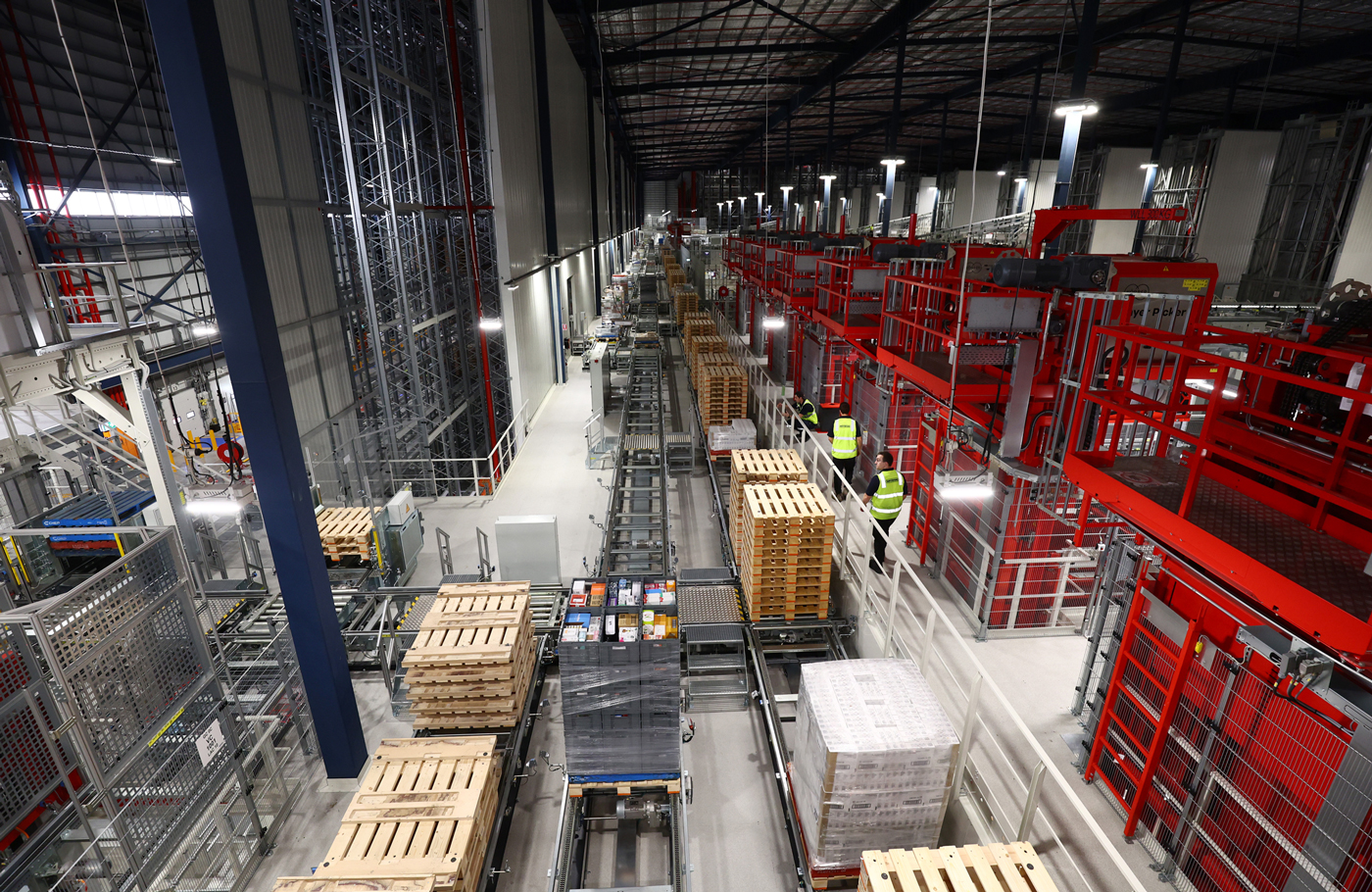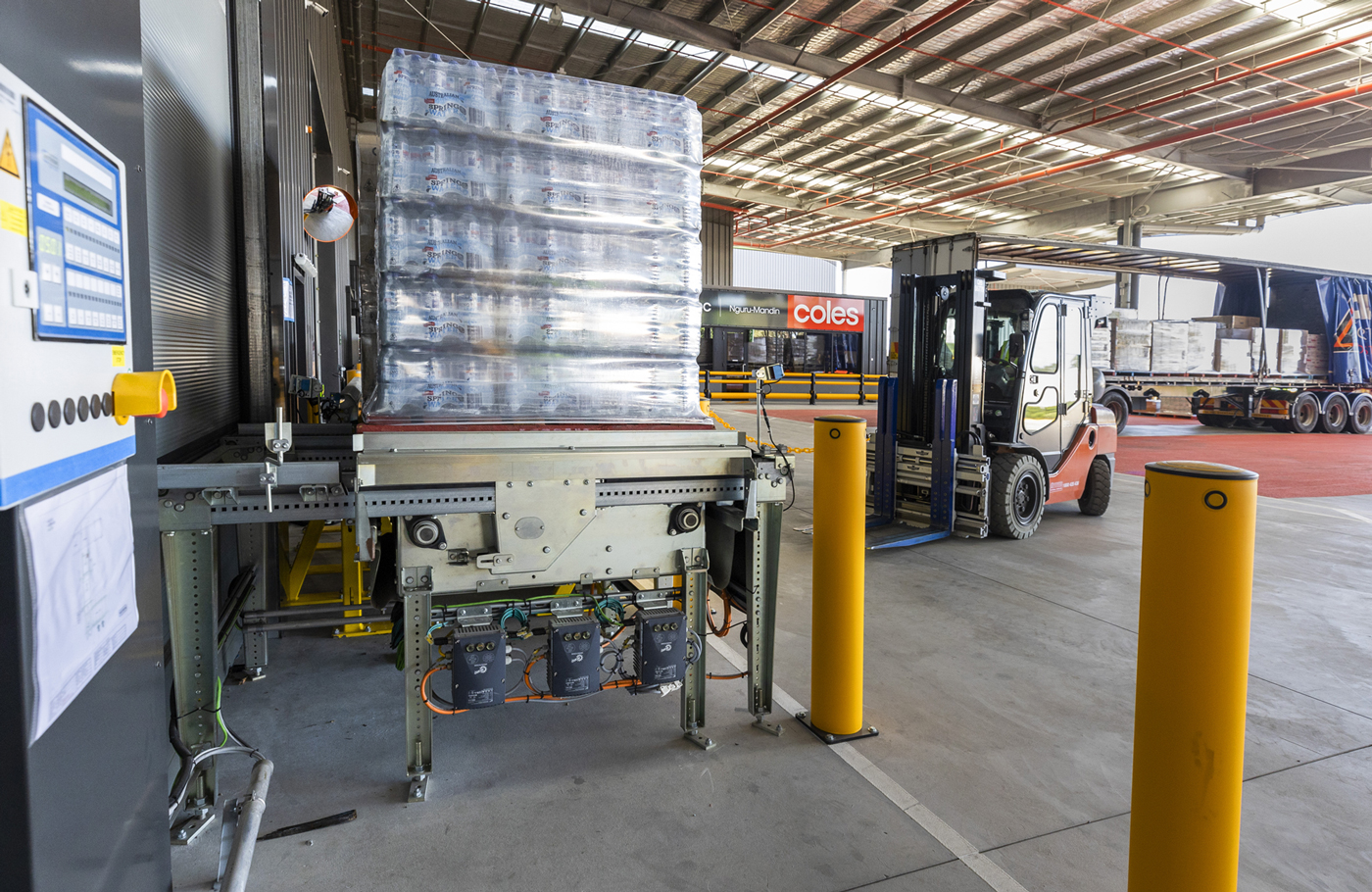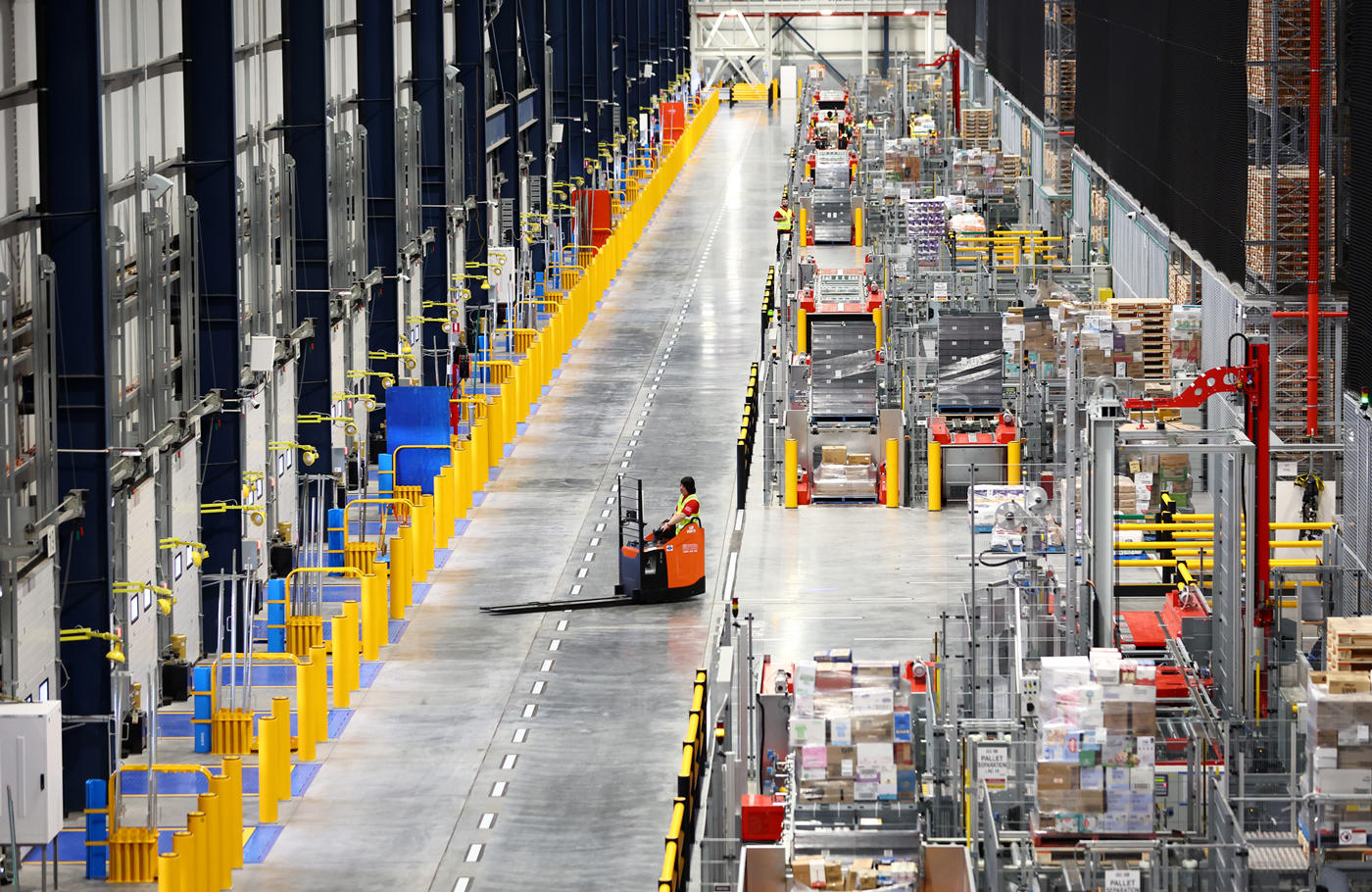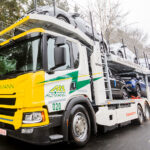The future of distribution is revealed
The future of distribution is revealed
The southern hemisphere’s largest automated distribution centre (ADC) has just opened its doors. Located in Queensland, Australia, it represents the future of distribution.
Owned by supermarket retailer the Coles Group, the ADC was opened by Australia’s Prime Minister Anthony Albanese, Queensland Premier Annastacia Palaszczuk, Coles Group chairperson James Graham, and Coles Group CEO Steven Cain. The centre is named Nguru-Mandin, meaning “the spirit of the fishing net”.
The state-of-the-art facility in Redbank is located 30 km southwest of Brisbane and will service 219 Coles supermarkets in Queensland and northern New South Wales (NSW), as far north as Port Douglas and as far south as Laurieton. A second ADC will open in Kemps Creek, NSW in 2024. The ADCs are designed to create safer and more sustainable outcomes for staff members and suppliers, as well as better on-shelf availability for customers.
When operating at full capacity, the site can process up to four million cases per week, the equivalent of 32 million units sold in stores. Over the course of a year, this equates to around 1.6 billion sales units.
The Redbank site spans 170 000 m2, twice the size of Queensland’s 52 500-seater Suncorp Stadium. With a building size of 66 000 m2, it’s one of the biggest and most productive automated distribution centres in the world. The High Bay pallet storage area stands 34 m high – almost three times taller than Coles’ current distribution centres.



Coles has partnered with Witron Logistik + Informatik, a global market leader in warehouse automation systems for major food retailers, for the construction of the ADC. “We have been engaged to build 93 automated distribution centres in 13 different countries, with the latest for Coles being the largest ambient system Witron has ever built,” says Witron CEO Helmut Prieschenk.
The facility, which can hold the full range of over 18 000 ambient products, means that Queensland and northern NSW supermarkets will no longer be reliant on a large number of products being transported from Sydney to Brisbane. Holding the full range of products within the state of Queensland will also drive better availability for Coles’ customers.
A pack pattern algorithm from Witron enables store order pallets to be packed to different heights in an optimal stacking sequence, based on product characteristics and store-friendly logic. Once these pallets are delivered to a store, they will require less sorting, due to improved product grouping and greater levels of accuracy. The ultimate aim is to improve on-shelf availability and allow store teams to be more customer focused.
Cain says the opening of the ADC marks one of the most significant moments since Coles was founded in 1914. “Modernising our operations is how we improve efficiency and availability in our stores and deliver higher service levels for our customers, team members, and suppliers,” he notes.
“Our new ADCs can process twice the number of cases and hold twice the number of pallets compared to our current DCs. The ADCs enable us to halve our current total footprint, leading to a more productive and sustainable business model.”
Over 90% of the cases processed in these ADCs will be processed fully by automation or ergonomically. Once the ADC is running close to full capacity, this will be a step-change for the safety of staff members, eliminating almost 18 million kilograms of manual handling in the supply chain each week.
Graham says he is proud of the team, partners, and suppliers who have worked together for over five years to create this state-of-the-art facility. “Over 3 000 people came together, contributing more than 2.5 million work hours to plan and design the facility, construct the building, and install and commission the automation,” he expands.
The Redbank ADC has LED and sensor lighting to reduce energy consumption and is fitted with 180 000 litres of harvested rainwater storage for toilet flushing and landscape irrigation.
The distribution centre will be powered by renewable electricity provided by Queensland’s publicly owned energy company CleanCo. There are plans for a 3.5-megawatt solar installation, which will be among the largest rooftop solar solutions in the Coles network. To minimise food waste, edible food that can’t be sold in the ADC will be donated to Coles’ community partner SecondBite. This organisation ensures that good food gets to people who need it most, rather than to a landfill.
According to Albanese, this world-leading technology will help advance supermarket supply chains. “This technology is not only a first for Australia, but also a win for the state of Queensland. As we’ve seen during the pandemic and natural disasters, resilient supply chains are essential when it comes to feeding our nation and providing Australians with essential supplies,” says the Prime Minister. “Coles is one of the biggest employers in this country and its team was pivotal in ensuring food security during challenging times. A facility like this one in Redbank shows how retailers and manufacturers can look to the future to improve the productivity, safety, and sustainability of their operations for all Australians.”
Published by
Focus on Transport
focusmagsa






